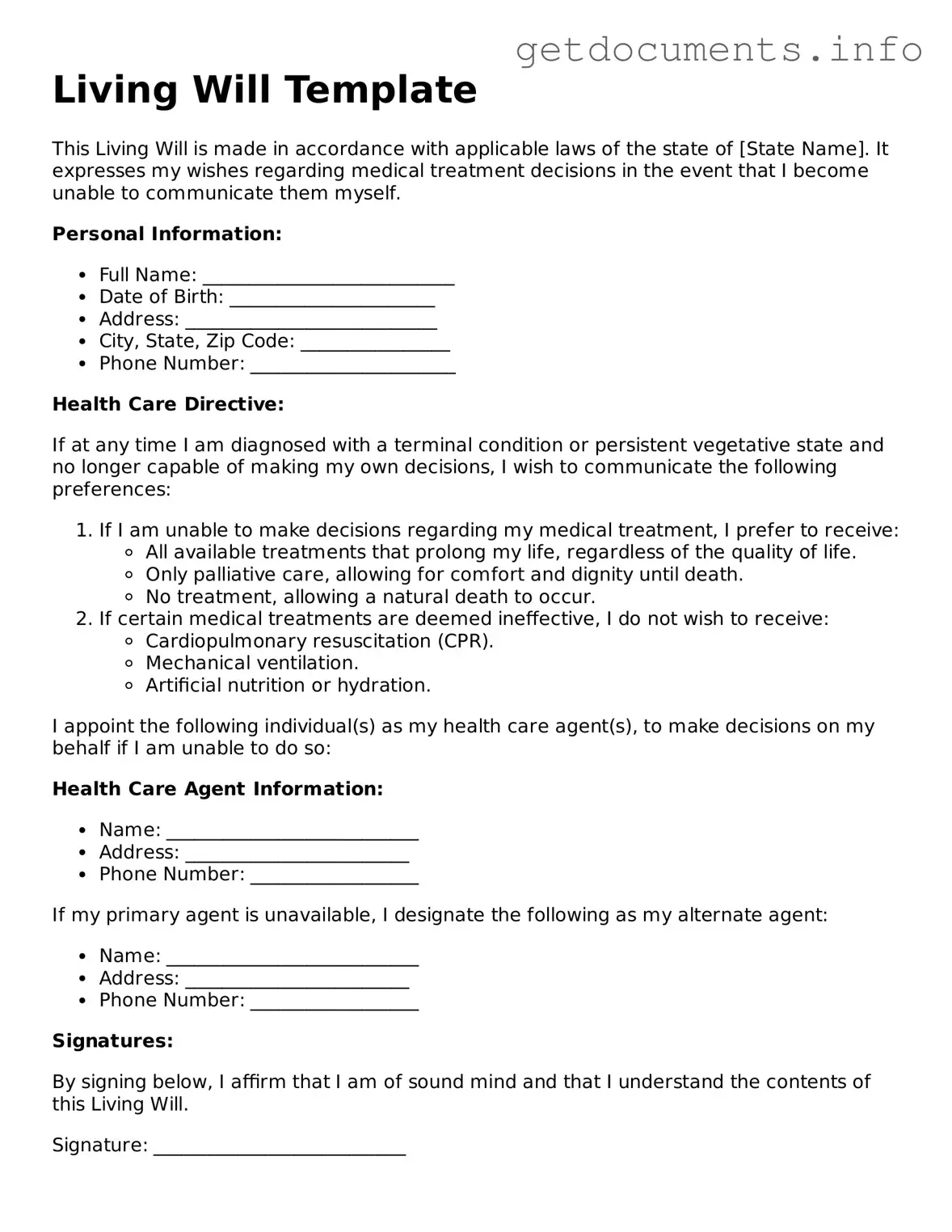Printable Living Will Document
A Living Will is a legal document that outlines your preferences for medical treatment in case you become unable to communicate your wishes. It provides guidance to your loved ones and healthcare providers about the types of life-sustaining measures you do or do not want. Take control of your healthcare decisions by filling out the Living Will form; click the button below to get started.
Access Living Will Editor

Printable Living Will Document
Access Living Will Editor
Got places to be? Complete the form fast
Fill out Living Will online and avoid printing or scanning.
Access Living Will Editor
or
⇩ PDF File
